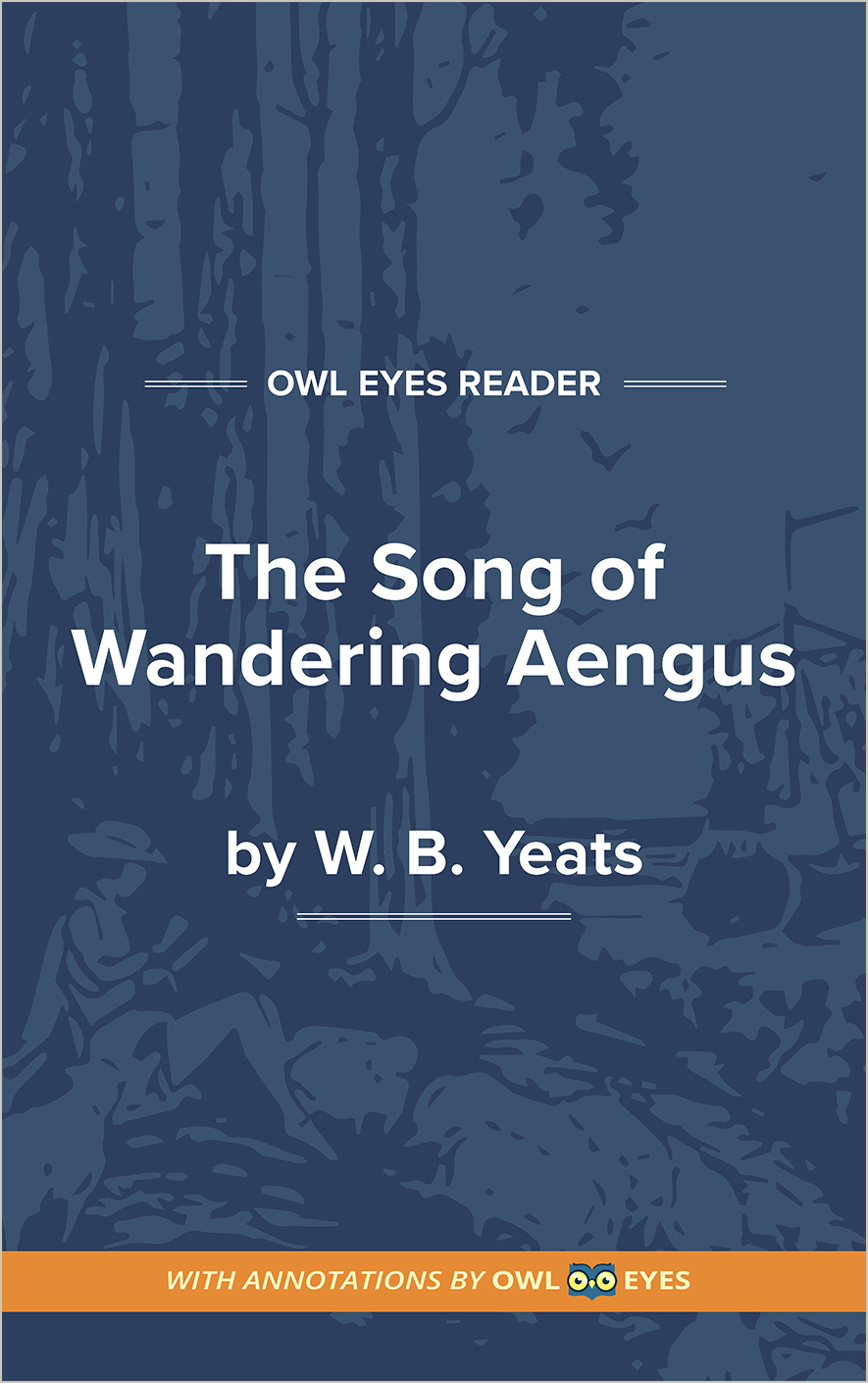Analysis Pages
Allusion in The Song of Wandering Aengus
The Myth of Aengus and Caer: In Celtic mythology, Caer is a god of youth, romantic love and longing, and poetic inspiration. Caer is also the goddess of dreams and usually takes the form of a swan. One night, Aengus falls in love with Caer in his dreams and, upon waking, begins to pursue her. Aengus eventually tracks down Caer at the lake of the Dragon’s Mouth but is dismayed to find that she is but one swan among hundreds. He succeeds in identifying Caer among the flock and suddenly transforms into a swan. Aengus and Caer fly away together. In Yeats’s retelling, however, Aengus is not eternally youthful, and he ages as any mortal would in his lifelong, fruitless pursuit of Caer.
The Otherworld: In Celtic mythology, the Otherworld is a plane of reality that exists alongside our normal, everyday world. The Otherworld is understood to be where mythical figures and locations dwell. There is a quality of eternity to the Otherworld in that it contains the souls of the dead as well as a panoply of immortal heroes and gods. According to Celtic tradition, there are portals between this world and the Otherworld that can be accessed by travelling to sacred locations, encountering mythical figures in dreams, enacting rituals, or celebrating holidays and festivals.
Allusion Examples in The Song of Wandering Aengus:
The Song of Wandering Aengus
🔒"apples..." See in text (The Song of Wandering Aengus)

